Understanding the EU’s CSRD Omnibus Proposal: What Companies Need to Know and How to Act
The European Commission ’s Omnibus proposal has sparked significant debate, introducing major changes to the Corporate Sustainability Reporting Directive (CSRD) and other sustainability regulations. This proposal, framed as a simplification effort, has led to confusion among businesses regarding whether they should continue preparing for CSRD compliance or pause their efforts. The Institutional Investors Group on Climate Change (IIGCC) have cautioned that such a move could "drastically reduce the number of companies required to disclose vital climate data," potentially hindering informed investment decisions and the EU's climate objectives.
At The ESG Institute, we aim to clarify the current situation and provide businesses with actionable steps to navigate the uncertainty.
What is the Omnibus Proposal?
On February 21, 2025, the European Commission proposed a series of amendments under the Omnibus initiative, aimed at reducing regulatory burdens on businesses. The changes specifically affect sustainability reporting and corporate due diligence obligations. Here are the most critical modifications:
1. Corporate Sustainability Reporting Directive (CSRD):
Scope Reduction: The proposal raises the applicability threshold, limiting mandatory reporting to companies with over 1,000 employees. This change excludes approximately 80% of firms previously covered under the directive.
Reporting Simplification: Plans to introduce sector-specific reporting standards have been abandoned, and the number of mandatory data points has been substantially reduced.
2. Corporate Sustainability Due Diligence Directive (CSDDD):
Delayed Implementation: The transposition deadline has been extended by one year to July 2027, with compliance requirements for large companies postponed to July 2028.
Scope Limitation: Due diligence obligations are now confined to direct suppliers, reducing the frequency of assessments from annually to every five years.
3. EU Taxonomy Adjustments:
Simplification Efforts: The proposal aims to streamline the EU Taxonomy, potentially clarifying assessment and reporting obligations and applying the materiality principle.
The Commission asserts that these adjustments are necessary to alleviate administrative burdens on businesses, thereby enhancing the EU's competitiveness on the global stage, particularly against the U.S. and China. The Omnibus proposal is part of broader reforms designed to decarbonize industries, reduce energy costs, and support energy-intensive sectors with substantial funding.
What This Means for Businesses
The Omnibus proposal introduces regulatory uncertainty for businesses, requiring them to assess how these changes affect their compliance obligations, reporting strategies, and stakeholder expectations. While the changes may reduce administrative burdens, they also create potential risks for companies that pause their sustainability efforts prematurely.
Key implications include:
A. Regulatory Variability Across EU Member States:
Since CSRD is a directive, it must be transposed into national law by each EU country. Some, like France, Spain, and the Netherlands, have already enacted CSRD, making compliance mandatory despite the proposed delay. Others, like Germany, are still in the process, creating a fragmented regulatory landscape.
Businesses operating in multiple EU countries must assess local laws to determine their ongoing obligations.
B. The Delay is Not Finalized:
The Omnibus proposal must undergo legislative approval within the EU, which could take 4-7 months or longer.
Even if approved, each country must decide how and when to implement the changes, adding further uncertainty.
C. Market and Stakeholder Expectations Remain High:
Investors, financial institutions, and consumers continue to expect transparent ESG disclosures, regardless of regulatory rollbacks.
Companies that maintain robust sustainability practices will be better positioned for long-term resilience, investment attractiveness, and market competitiveness.
D. Strategic Compliance is a Safer Bet:
Businesses that continue preparing for CSRD and ESG reporting will have a competitive advantage over those that halt their efforts and later scramble to meet requirements when regulations are reinstated.
What Should Companies Do Now?
Rather than halting efforts, businesses should focus on strategic preparation. Here’s how:
✅ 1. Review Your Legal Requirements
Check your country’s transposition status: If CSRD has been implemented in your country, compliance remains mandatory.
Understand the evolving legal landscape: Track changes in national legislation and EU-level decisions to stay ahead of future requirements.
✅ 2. Continue Sustainability Work Proactively
Even if reporting obligations change, corporate sustainability remains a long-term priority. Companies should:
Conduct double materiality assessments to understand key environmental and social impacts.
Strengthen data collection processes to ensure readiness for future disclosures.
Improve internal ESG governance structures and corporate strategies to align with evolving expectations.
✅ 3. Educate and Engage Leadership
Ensure executives and boards understand that regulatory uncertainty does not mean sustainability is optional.
Align sustainability strategies with broader risk management and business resilience goals.
Communicate potential financial and reputational risks of halting sustainability efforts.
✅ 4. Monitor Regulatory and Market Developments
Stay updated on EU legislative progress regarding the Omnibus proposal.
Engage with industry bodies, ESG consultants, and regulatory experts to anticipate best practices.
Prepare for potential voluntary disclosures, as many investors and financial institutions still require ESG transparency for funding and partnerships.
In Summary: Adapt, Don’t Pause
At The ESG Institute, we acknowledge the intent to balance regulatory efficiency with sustainability goals. However, we emphasize that:
Sustainability Reporting Remains Vital: Transparent ESG disclosures are essential for informed decision-making by investors, consumers, and other stakeholders.
Proactive Engagement is Beneficial: Companies should continue to integrate sustainability into their core strategies, anticipating that market and societal expectations for environmental responsibility will persist.
Staying Informed is Crucial: Businesses must monitor ongoing regulatory developments to adapt effectively and uphold their commitments to sustainability.
While the Omnibus proposal suggests regulatory relief, it does not eliminate the importance of sustainability reporting. Companies should resist the urge to halt ESG initiatives and instead focus on long-term resilience and transparency.
At The ESG Institute, we are committed to guiding businesses through these evolving regulations. For support in navigating CSRD and ESG reporting, reach out to us today.

